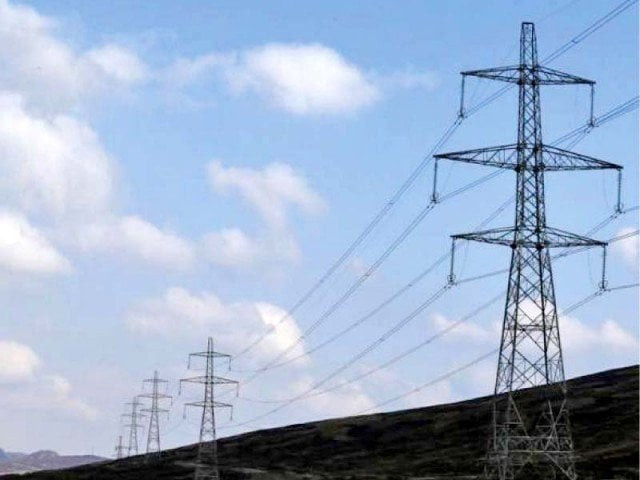Residents, authorities share grievances against HESCO
Utility powers 13 districts of Hyd, Nawabshah and Mirpurkhas divisions

Utility powers 13 districts of Hyd, Nawabshah and Mirpurkhas divisions. PHOTO REUTERS
While the domestic consumers of Hyderabad Electric Supply Company (Hesco) often express their agony by taking to the streets and, in some instances, by attacking the offices of Hesco, similar complaints echo among the provincial government and district administrations.
The company powers 13 districts of Hyderabad, Nawabshah and Mirpurkhas divisions. On Sunday, it was receiving a peak supply of 780 megawatt (MW) from the national grid against the demand of 900MW. The off-peak demand remained 800MW against the supply of 660 MW, according to Hesco’s spokesman, Sadiq Kubar.

The company claims of carrying out six-hour and eight-hour load-shedding in urban and rural areas, respectively. The areas with high-line losses suffer from 10 to 12 hours electric supply suspension. However, consumers, mostly from the rural areas, claim they have to deal with up to 16 hours of daily load-shedding.
Hyderabad, Badin, Nawabshah, Dadu and Mirpurkhas are among the districts that have seen frequent protests, including the reportedly violent ones of assaulting of offices.
The consumers’ complaints mainly feature unscheduled load-shedding, prolonged cuts due to system faults, delayed response to complaints, excessive billing and collective actions of severing electricity supply.
“Over the last four months, four transformers in our area have broken down but none have been repaired,” claimed Bashir Ahmed Laghari, a protester among the residents of Aliabad Colony in Hala Naka area of Hyderabad, who laid siege to the bureaucracy’s headquarters on Friday. According to him, the Hesco authorities have been telling them to clear all their outstanding dues before their complaint can be addressed.
“Hesco has put citizens and the district administrations in trouble,” said Qazi Shahid Pervez, the commissioner of Hyderabad division. He also acknowledged that Hesco is failing to respond to the complaints. “[Water and Sanitation Agency] Wasa [that supplies drinking water to Hyderabad and is also partly responsible for drainage] faced a financial crisis last year,” he said. “But it still managed to supply water. However, now the power supply disruption has resulted in water scarcity.”
During the first pre-monsoon rainfall on June 29, a large number of electricity feeders went off, taking as long as the whole day for restoration. A district administration official said that they found staff at Hesco’s grid stations absent that day. “We ran wireless messages through the police for bringing back the grid stations’ workers from their homes to the offices,” the official narrated.
NAB enters the fray
Hesco chief Akhtar Ali Randhawa, who has been continuing his job on extension after his retirement from service, reportedly faced criticism from the members of the Board of Directors at a meeting on Saturday.
An official requesting anonymity said the members proposed referring cases of alleged corruption and excessive billing against Hesco officials to the National Accountability Bureau (NAB).
“So far, NAB is only referred cases of defaulting consumers [who don’t pay their bills],” said a Hesco spokesperson. “But now they will also investigate the alleged involvement of Hesco employees in excessive billing. If anyone is found responsible, NAB will recommend departmental action.”
Published in The Express Tribune, July 4th, 2016.



















COMMENTS
Comments are moderated and generally will be posted if they are on-topic and not abusive.
For more information, please see our Comments FAQ